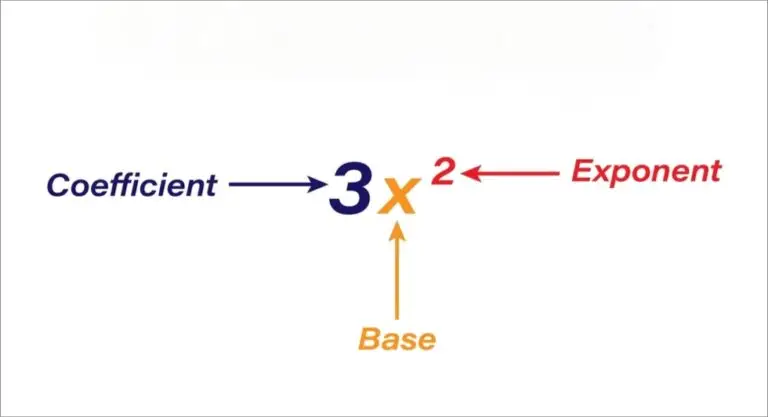Base (Algebra)

Table of Contents
Base in Equations
The term “base” typically refers to the number raised to a certain power in an exponential expression.
The base is the value multiplied by itself a certain number of times. In the general form a^n, where a is the base and n is the exponent, a is the number that is repeated.
Base Examples
In the expression 2^3, the base is 2, and the exponent is 3. So, 2 is raised to the power of 3, which equals 2 x 2 x 2= 8
In 10^2, the base is 10, and the exponent is 2. This means 10 is multiplied by itself (10×10), resulting in 100.
In x^4, x is the base, and the exponent is 4. This represents x multiplied by itself four times x \times x \times x\times x.
Related Links
Coefficient
Constant
Exponent
Polynomial